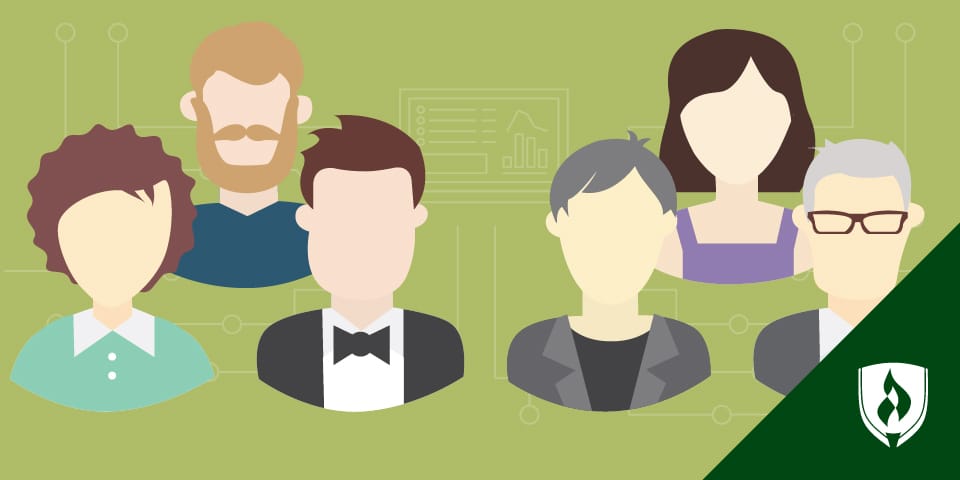What Is the Difference Between Computer Science and Information Technology?
06/26/2025

If you're considering a future in tech, you’ve likely looked into two key fields, computer science and information technology (IT). While both fields work with computers, software and systems, they focus on different aspects of technology and understanding those distinctions can help align your career goals with the right educational path for you.
What Is Computer Science?
Computer science is the study of computational systems1 that focuses on how computers process information and solve complex problems. It’s the process2 of designing, creating and optimizing systems; a field with foundations in mathematics, logic, and the development of software programs and systems. Students pursuing computer science degrees may explore topics like data structures, artificial intelligence, machine learning, software engineering, and computational theory.
This discipline may prepare you to design new tools and technology solutions, ranging from innovative apps to scalable operating systems. You may have the opportunity to work with programming languages, understand the structure of computer hardware, and create efficient computer programs. Whether it's writing algorithms or developing software for cloud computing platforms, computer science professionals drive much of today’s technological innovation.
What Is Information Technology?
While computer science focuses on theory and creation, information technology is using technology to solve business and organizational problems.2 IT emphasizes the daily operation and support of computer systems, like installing software, maintaining network infrastructure, overseeing database management, and ensuring information security.
IT professionals often manage data flow and ensure that business systems run smoothly. From technical support and system administration to network security and project management, these experts are critical to keeping digital operations running smoothly. A degree in IT typically blends technical training with skills in communication, analysis, and business operations.
Key Differences Between Computer Science vs. Information Technology
To clearly see how these two fields differ, consider the following comparison:
| Aspect | Computer Science | Information Technology |
|---|---|---|
| Core Focus | Theoretical computing, software creation | Application, support, and management of tech systems |
| Common Topics | Algorithms, data structures, AI, machine learning | Networking, database tools, cybersecurity, support |
| Technical Emphasis | Programming languages, computational theory | Network administration, hardware/software troubleshooting |
| Education Path | Math-intensive, often includes advanced degrees | Broader, with a focus on practical skills and systems support |
| Example Careers | Software developer, software application developer | Information Technology Manager, network analyst, network administrator |
Common Educational Paths and Coursework
When exploring academic options, computer science degrees focus3 more heavily on analytical subjects such as software engineering, programming, and algorithm and data structures. These programs may be a good fit for students interested in exploring software development, designing computational systems, or contributing to emerging technologies. Graduates often work in research, engineering, or development roles.
An IT program4 develops advanced technical, analytical, and leadership skills, including project and team management, needed for success in the field.
In both cases, a bachelor’s degree is typically the foundation, though some roles benefit from a master’s degree or certifications for specialized knowledge. Students can also benefit from online courses, workshops, or bootcamps that offer more focused instruction in technologies relevant to current workforce needs.
Computer Science and IT Career Paths and Job Functions
Computer science graduates often pursue careers3 in roles that develop and refine technology, such as:
- Software developer
- Software application developer
- Mobile developer
- Mobile software developer
- Mobile software engineer
- Cloud application engineer
On the other hand, those in IT roles4 usually manage or support that technology in settings like businesses, schools, and government agencies:
- Information Technology Manager
- Network Analyst
- Network Administrator
According to the Bureau of Labor Statistics, both computer science and IT jobs are in demand due to the increasing reliance on digital tools and services.
For example, the field of software development or quality assurance is projected to grow 17%5 from 2023 to 2033, which is much faster than the average for all occupations.
For example, the field of network administration is projected to grow 9%6 from 2023 to 2033, also must faster than the average for all occupations.
Examining Which Skills You’ll Develop
Both paths help you build strong technical skills,2 though with different emphases. Depending on the role and responsibilities, computer scientists may choose to sharpen their abilities in computational theory, algorithm design, and computer programming. They often work on creating solutions for long-term innovation.
By contrast, IT professionals focus on practical implementation, user support, database management, and systems analysis. Skills in applying technology to solve real-time issues are key. Both disciplines require strong communication, collaboration, and problem-solving skills to succeed.
These skills are not only technical but also strategic. Professionals in either field often participate in cross-functional teams and need to understand how their roles affect overall organizational outcomes. In this way, soft skills like adaptability, attention to detail, and time management become invaluable.
Is Computer Science or Information Technology Right for You?
The choice between computer science and information technology depends on your career aspirations and how you prefer to work with technology. If you're passionate about coding, designing computer systems, and working on the cutting edge of innovation, computer science might be worth examining more closely.
If you’re drawn to optimizing and maintaining digital systems, managing users and data, and implementing software development in business environments, then information technology may be the better fit.
To help narrow your path, consider:
- Do you enjoy building new tools from scratch, or do you prefer solving practical tech problems?
- Are you more comfortable working alone on creative tasks, or supporting teams through technical operations?
- Would you rather focus on abstract thinking and design, or hands-on configuration and maintenance?
Answering these questions can help you explore how to align with your strengths and future goals.
Choosing Between IT and Computer Science
Both IT and computer science professionals are critical to success across industries. In many industries, computer science and information technology experts help shape the future of how we work, communicate, and innovate.
Choosing the right path comes down to your personal interests, your comfort with theoretical versus practical work, and your long-term career goals.
Whichever path you choose, staying engaged with emerging technologies, upskilling through certifications, and remaining adaptable may equip you for roles in this constantly evolving industry.
1Rasmussen University, “What Is Computer Science?” available at https://www.rasmussen.edu/degrees/technology/blog/what-is-computer-science/ (visited June 2, 2025).
2Rasmussen University, “What Is Information Technology?” available at https://www.rasmussen.edu/degrees/technology/blog/what-is-information-technology/ (visited June 2, 2025).
3Rasmussen University, “Computer Science Degree,” available at https://www.rasmussen.edu/degrees/technology/computer-science/ (visited June 2, 2025).
4Rasmussen University, “IT Management Degree,” available at https://www.rasmussen.edu/degrees/technology/it-management/ (visited June 2, 2025).
5Bureau of Labor Statistics, U.S. Department of Labor, Occupational Outlook Handbook, Software Developers, available at https://www.bls.gov/ooh/computer-and-information-technology/software-developers.htm#tab-6 (visited June 2, 2025). Employment conditions in your area may vary.
6Bureau of Labor Statistics, U.S. Department of Labor, Occupational Outlook Handbook, Database Administrators and Architects, available at https://www.bls.gov/ooh/computer-and-information-technology/database-administrators.htm#tab-6 (visited June 2, 2025). Employment conditions in your area may vary.



